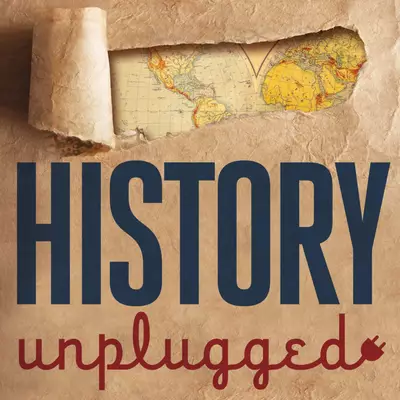Listen on Your Favorite App
What “Dear John” Letters Tell Us About the Fragility of Wartime Relationships…and How They Unexpectedly Lead to Greater Camaraderie
March 29, 2022
00:00
43:45
Listen on Your Favorite App
During World War II nearly one billion letters were sent to the front, but none struck more fear in the heart of the average soldier than the one that began with the following: “Dear John: I don’t know quite how to begin but I just want to say that Joe Doakes came to town on furlough the other night and he looked very handsome in his uniform, so when he asked me for a date…” Such is an example of the “Dear John” letters that World War II G.I.s received from sweethearts or wives at home who had decided to politely, but unceremoniously, end their relationship. Though the phrase “Dear John” was coined during World War II and the break-up letters have found their way into every American war since then, the exact origins of the term have always been shrouded in obscurity.
In her new book Dear John: Love and Loyalty in Wartime America, historian and today’s guest Susan L. Carruthers details the history of the “Dear John” letter and explores wartime relationships and breakdowns from multiple perspectives—civilian and military, male and female, historical and contemporary. Using a diverse range of research, using personal letters, declassified documents, press reports, psychiatric literature, movies, and popular music, Carruthers also shows how the armed forces and civilian society have attempted to weaponize romantic love in pursuit of martial ends, from World War II to today. Though many U.S. officers, servicemen, veterans, and civilians would agree that “Dear John” letters are lethal weapons in the hands of men at war, Carruthers explains that efforts to discipline feelings have frequently failed. We discuss the interplay between letter-writing and storytelling, breakups and breakdowns, and between imploded intimacy and boosted camaraderie. Incorporating vivid personal experiences in lively and engaging prose—variously tragic, comic, and everything in between—this compelling study will change the way we think about wartime relationships.
As Carruthers explains, “Making romantic intimacy serve the cause of victory has never been straightforward for the military. Nor has making love work in wartime been simple for individuals and couples. The reasons why can be discerned by reading the subtexts and contexts of ‘Dear John’ letters, and by listening attentively to what men and women have had to say about the fragility of love at war.”
In her new book Dear John: Love and Loyalty in Wartime America, historian and today’s guest Susan L. Carruthers details the history of the “Dear John” letter and explores wartime relationships and breakdowns from multiple perspectives—civilian and military, male and female, historical and contemporary. Using a diverse range of research, using personal letters, declassified documents, press reports, psychiatric literature, movies, and popular music, Carruthers also shows how the armed forces and civilian society have attempted to weaponize romantic love in pursuit of martial ends, from World War II to today. Though many U.S. officers, servicemen, veterans, and civilians would agree that “Dear John” letters are lethal weapons in the hands of men at war, Carruthers explains that efforts to discipline feelings have frequently failed. We discuss the interplay between letter-writing and storytelling, breakups and breakdowns, and between imploded intimacy and boosted camaraderie. Incorporating vivid personal experiences in lively and engaging prose—variously tragic, comic, and everything in between—this compelling study will change the way we think about wartime relationships.
As Carruthers explains, “Making romantic intimacy serve the cause of victory has never been straightforward for the military. Nor has making love work in wartime been simple for individuals and couples. The reasons why can be discerned by reading the subtexts and contexts of ‘Dear John’ letters, and by listening attentively to what men and women have had to say about the fragility of love at war.”
See omnystudio.com/listener for privacy information.
More Episodes
See all episodes
Meet Your Host

Scott Rank is the host of the History Unplugged Podcast and a PhD in history who specialized in the Ottoman Empire and modern Turkey. Before going down the academic route he worked as a journalist in Istanbul. He has written 12 history books on topics ranging from lost Bronze Age civilizations to the Age of Discovery. Some of his books include The Age of Illumination: Science, Technology, and Reason in the Middle Ages and History’s 9 Most Insane Rulers.. Learn more about him by going to scottrankphd.com.
